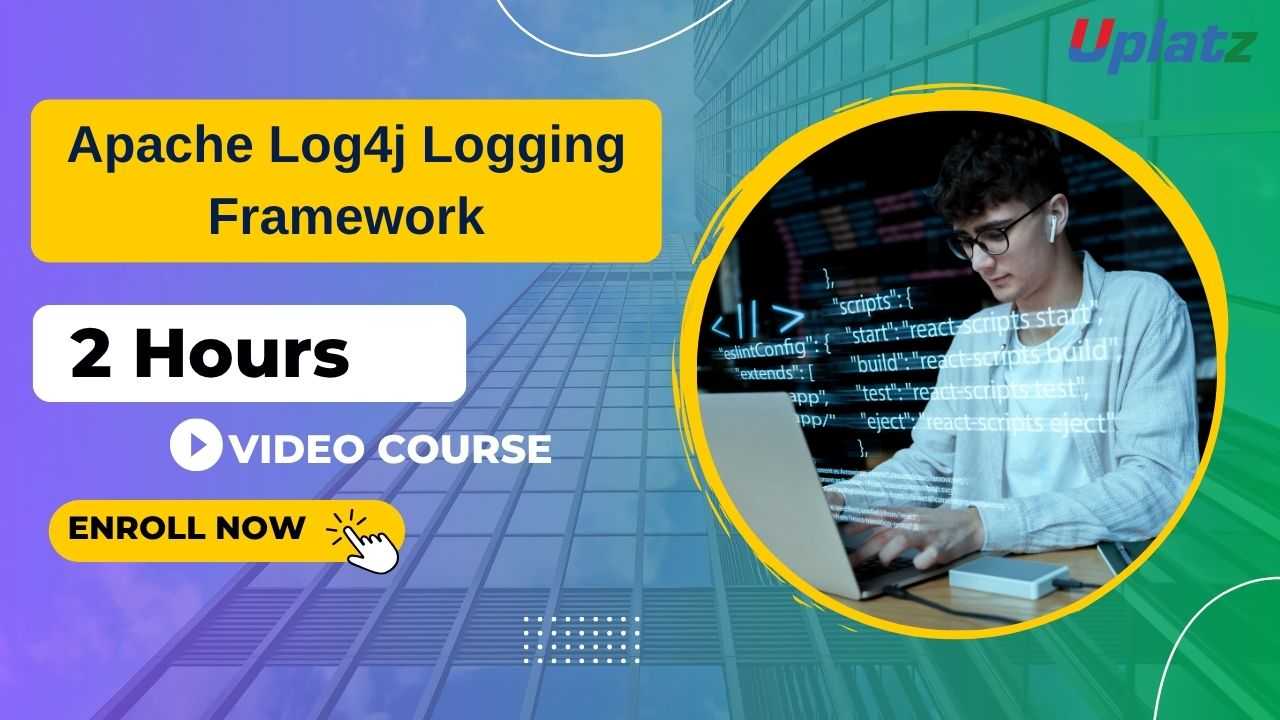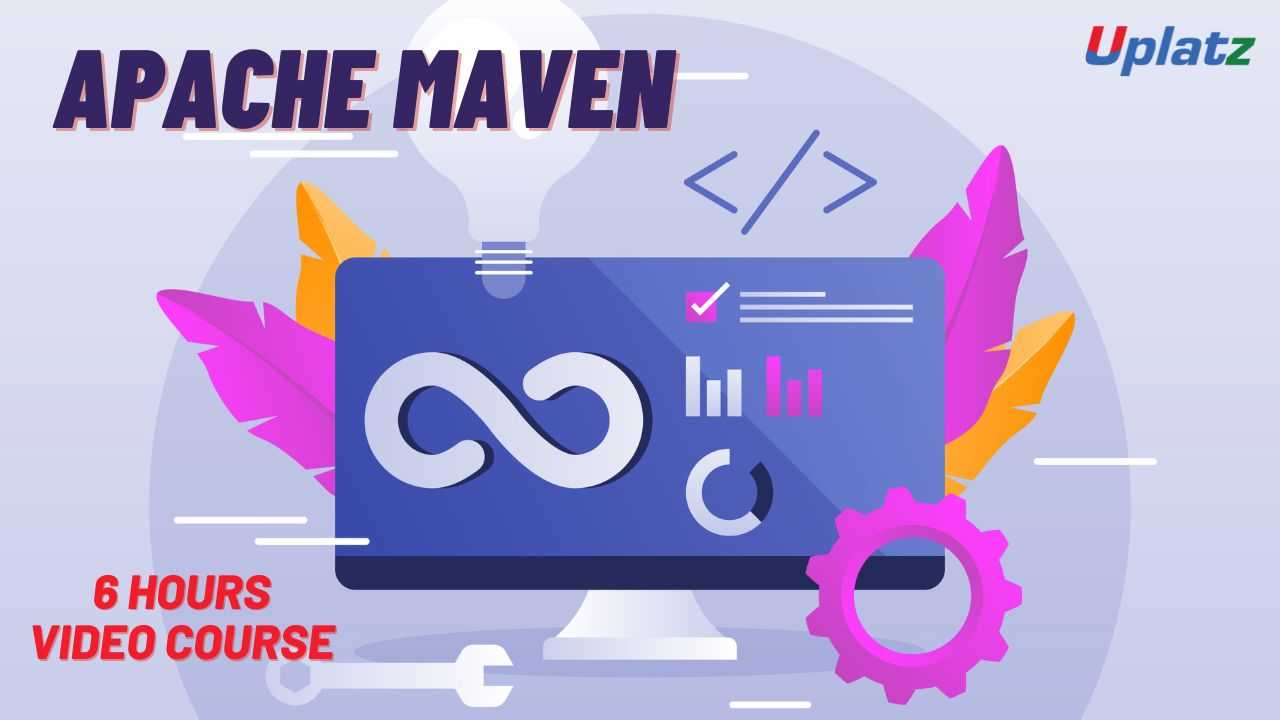Apache NiFi
Learn to Automate Data Flows with Apache NiFi – Master Visual Data Integration and Real-Time Stream RoutingPreview Apache NiFi course
Price Match Guarantee Full Lifetime Access Access on any Device Technical Support Secure Checkout Course Completion Certificate 95% Started a new career
BUY THIS COURSE (
95% Started a new career
BUY THIS COURSE (GBP 12 GBP 29 )-
 86% Got a pay increase and promotion
86% Got a pay increase and promotion
Students also bought -
-

- Apache Spark and PySpark
- 50 Hours
- GBP 12
- 888 Learners
-

- Apache Log4j Logging Framework
- 2 Hours
- GBP 12
- 894 Learners
-

- Apache Maven
- 6 Hours
- GBP 12
- 765 Learners

-
A CSV-to-Database ETL flow for batch processing
-
A real-time log routing pipeline using Kafka and Elasticsearch
-
A cloud integration pipeline with AWS S3 and RDS
-
Design and deploy scalable data pipelines using NiFi’s Flow-Based Programming (FBP) model
-
Use NiFi processors, controller services, and parameter contexts
-
Handle scheduling, backpressure, and retries
-
Monitor data lineage and performance metrics
-
Secure data flows using SSL, access policies, and user authentication
-
Data engineers and analysts working with large-scale data movement
-
ETL and integration developers
-
System administrators managing data ingestion pipelines
-
DevOps engineers automating data connectivity
-
Anyone looking to manage and route data without writing custom code
-
Follow the Flow – Begin with basic processors and build up to advanced routing and transformation.
-
Practice by Designing – Build your own versions of pipelines shown in the course.
-
Explore NiFi Registry – Learn versioning and CI/CD workflows for data flows.
-
Use the Templates – Reuse modular flows with templates and parameterization.
-
Observe the Data – Check provenance and queues to see how data behaves.
-
Monitor Resource Usage – Learn performance tuning and queue thresholds.
-
Secure Early – Practice access control, SSL certificates, and user roles from the start.
Course/Topic 1 - Coming Soon
-
The videos for this course are being recorded freshly and should be available in a few days. Please contact info@uplatz.com to know the exact date of the release of this course.
By the end of this course, you will be able to:
-
Understand NiFi architecture, FlowFiles, and components
-
Build, test, and deploy automated data pipelines using NiFi
-
Integrate with external systems like Kafka, Hadoop, SQL, and S3
-
Monitor flow performance and trace data lineage
-
Manage flow versions with NiFi Registry
-
Secure data flows with role-based access control
Course Syllabus
Module 1: Introduction to Apache NiFi
-
What is NiFi?
-
Use Cases and Industry Applications
-
Installing and Starting NiFi
Module 2: NiFi Fundamentals
-
FlowFiles, Processors, Connections
-
Queues and Backpressure
-
FlowFile Attributes and Content
Module 3: Building Basic Data Flows
-
File-to-File Copy Flow
-
CSV to Database Pipeline
-
REST API Ingestion
Module 4: Data Transformation and Routing
-
UpdateAttribute and RouteOnAttribute
-
ReplaceText and ExecuteScript
-
Working with Record-Oriented Processors
Module 5: Working with Databases and Filesystems
-
QueryDatabaseTable, PutDatabaseRecord
-
Read/Write to HDFS, S3
-
MergeContent and SplitText
Module 6: Integrating with Messaging Systems
-
Kafka Consumer and Producer
-
MQTT, AMQP Processors
Module 7: Advanced Flow Management
-
Scheduling Strategies
-
FlowFile Prioritization and Backpressure
-
Load Balancing and Remote Process Groups
Module 8: Templates, Registry, and Versioning
-
Creating and Importing Templates
-
Using NiFi Registry for Flow Version Control
Module 9: Clustering and Scalability
-
NiFi Cluster Architecture
-
Node Management and Load Distribution
Module 10: Monitoring and Troubleshooting
-
Provenance and Data Lineage
-
Bulletins and Logs
-
Performance Metrics
Module 11: Security and Access Control
-
SSL Configuration
-
User Authentication and Policies
-
Role-Based Access Control
Module 12: Projects and Real-World Scenarios
-
Real-Time Log Aggregation with Kafka
-
Sensor Data Pipeline with MQTT and InfluxDB
-
Cloud Integration for Backup Automation
Module 13: Apache NiFi Interview Questions & Answers
-
Core Concepts
-
Best Practices
-
Real-World Implementation Challenges
Upon completing the course, learners will receive a Uplatz Certificate of Completion in Apache NiFi. This certificate validates your proficiency in visual data pipeline development, system integration, and flow management using NiFi, and will help you stand out when applying for roles in data engineering, ETL development, or automation engineering.
Apache NiFi is a popular tool in data integration and is often used in Big Data, cloud migration, and DevOps projects. With NiFi skills, you can pursue roles such as:
-
Data Integration Engineer
-
ETL Developer
-
Data Flow Architect
-
Big Data Engineer
-
Platform Automation Specialist
-
What is Apache NiFi and what are its key features?
Answer: Apache NiFi is a data flow management tool that supports routing, transformation, and system mediation logic. Key features include a visual UI, flow version control, backpressure handling, data provenance tracking, and built-in processors for hundreds of data systems. -
What is a FlowFile in NiFi?
Answer: A FlowFile is the fundamental data object in NiFi. It consists of content (actual data) and attributes (metadata) and is passed through a flow for processing and transformation. -
What are Processors in NiFi?
Answer: Processors are components in NiFi that perform specific operations on FlowFiles such as reading, writing, transforming, or routing. Examples includeGetFile,PutDatabaseRecord,RouteOnAttribute. -
What is backpressure and how is it handled in NiFi?
Answer: Backpressure is a flow control mechanism to prevent queues from consuming too much memory. It’s managed using thresholds based on object count or size, pausing upstream processors until space is available. -
How does NiFi ensure data provenance?
Answer: NiFi records every action taken on a FlowFile in a provenance repository, allowing users to trace where data came from, how it was modified, and where it was sent—supporting audits and debugging. -
How do you handle secure access in NiFi?
Answer: NiFi supports SSL/TLS for secure data transmission, and has user authentication (LDAP, Kerberos) and role-based access control (RBAC) for defining permissions on processors, flows, and settings. -
What is the role of NiFi Registry?
Answer: NiFi Registry provides version control for data flows. It allows users to save, retrieve, and compare different versions of a flow, enabling flow lifecycle management and collaboration. -
How does NiFi differ from ETL tools like Apache Airflow or Talend?
Answer: NiFi is designed for flow-based data movement with a focus on real-time processing, visual design, and integration. Airflow is task-scheduler-oriented, while Talend is code-intensive. NiFi’s strength lies in streaming and event-driven integration. -
How do you scale NiFi in a cluster?
Answer: NiFi can run in a clustered mode where multiple nodes coordinate under a single Flow. Each node processes a portion of the data, enabling horizontal scaling. A Zookeeper-based coordinator ensures synchronization. -
Can you schedule and prioritize processors in NiFi?
Answer: Yes, NiFi allows scheduling based on time intervals or event triggers. You can also set processor priorities and concurrent tasks to control execution behavior.









